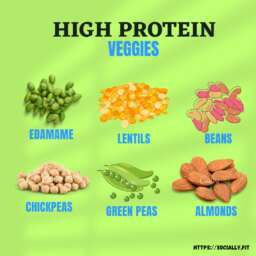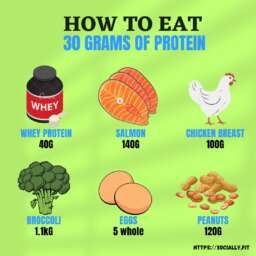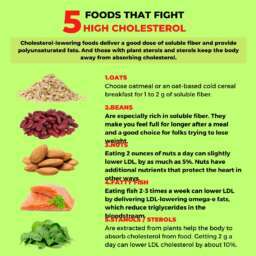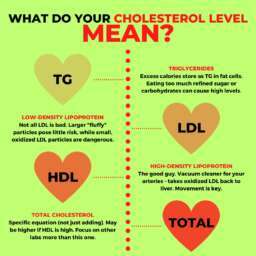Is Poha Good for Weight Loss? Discover the benefits of Poha for weight loss. Explore its nutritional profile, how it aids in weight management, and compare it with other popular weight loss foods.
Introduction: Is Poha Good for Weight Loss?
In recent years, many people have turned to various diets and food options to achieve their weight loss goals. One such food that has gained popularity is Poha, a traditional Indian dish made from flattened rice. But is Poha good for weight loss? In this article, we will explore the nutritional benefits of Poha, how it can assist in weight loss, and ways to incorporate it into your daily diet.
What is Poha?

Poha, also known as flattened rice, is a popular dish in Indian cuisine, particularly enjoyed as a breakfast option. It is made from rice that has been parboiled, flattened, and dried, resulting in light, flaky rice flakes. This versatile ingredient can be prepared in various ways, often sautéed with spices, vegetables, and sometimes garnished with peanuts or fresh herbs. Poha is not only easy to cook but also absorbs flavors well, making it a delightful base for a variety of dishes.
In addition to its culinary appeal, Poha is celebrated for its nutritional benefits. It is a good source of carbohydrates, providing energy while being relatively low in calories. The dish is often enriched with vegetables, which adds fiber and essential vitamins, making it a wholesome meal. Its light texture and ease of digestion make Poha an ideal choice for breakfast, especially for those looking for a quick yet nutritious start to their day.
Is Poha Good for Weight Loss
Nutritional Profile of Poha
Macronutrients
Poha primarily consists of carbohydrates, making it an excellent source of energy. Additionally, it contains a modest amount of protein and very little fat. Here’s a brief overview of its macronutrient composition per 100 grams:
- Carbohydrates: 76 g
This high carbohydrate content provides a quick source of energy, making Poha a popular breakfast choice. - Protein: 2 g
While not a significant source of protein, it contributes to the overall protein intake when combined with other ingredients. - Fat: 0.5 g
Poha is very low in fat, which makes it a heart-healthy option.
Micronutrients
In addition to macronutrients, Poha offers a range of vitamins and minerals that contribute to its health benefits:
- Iron: Important for blood production and preventing anemia, iron in Poha supports overall energy levels.
- Magnesium: This mineral plays a crucial role in muscle and nerve function, as well as in energy production.
- Vitamin B6: Essential for metabolism and brain health, vitamin B6 helps in the synthesis of neurotransmitters.
- Folate: Important for cell division and the production of DNA, folate is vital for pregnant women and overall health.
- Zinc: This mineral supports immune function and is involved in numerous enzymatic reactions in the body.
- Potassium: Helps regulate fluid balance and supports heart health by maintaining proper blood pressure levels.
Overall, Poha is not only a delicious and versatile dish but also provides a balanced mix of macronutrients and micronutrients that can contribute to a healthy diet. Its nutritional profile makes it a suitable option for those looking to maintain energy levels while enjoying a light meal.
Is Poha Good for Weight Loss
Health Benefits of Poha

- Rich in Carbohydrates
Poha is a great source of carbohydrates, providing the energy needed to kickstart your day. This makes it an excellent breakfast option for maintaining energy levels throughout the morning. - Supports Weight Loss
Due to its high fiber content, Poha helps keep you feeling fuller for longer. This can aid in controlling hunger and reducing overall calorie intake, making it beneficial for weight management 1. - Packed with Iron
Poha is rich in iron, which is essential for the production of hemoglobin in the blood. Consuming iron-rich foods like Poha can help prevent anemia and boost energy levels 2. - High in Fiber
The fiber content in Poha aids digestion and promotes gut health. It helps regulate bowel movements and can prevent constipation, contributing to overall digestive wellness. - Contains Antioxidants
Poha is a good source of antioxidants, which help combat oxidative stress in the body. This can reduce the risk of chronic diseases and support overall health 2. - Easy to Digest
Being light and easy to digest, Poha is an ideal meal for those recovering from illness or for individuals with sensitive stomachs. It provides nourishment without causing discomfort. - Versatile and Customizable
Poha can be easily customized with various vegetables, nuts, and spices, enhancing its nutritional profile. This versatility allows you to incorporate a variety of nutrients into your diet. - Low Glycemic Index
Poha has a moderate glycemic index, which means it releases energy slowly. This helps maintain stable blood sugar levels, making it a suitable option for those managing diabetes 3. - Rich in Essential Vitamins
Poha contains essential vitamins such as B vitamins, which play a crucial role in energy metabolism and overall health. These vitamins support brain function and help reduce fatigue. - Promotes Heart Health
The fiber and antioxidant content in Poha can contribute to heart health by lowering cholesterol levels and reducing the risk of heart disease. Including Poha in a balanced diet can support cardiovascular wellness.
In summary, Poha is not only a delicious and versatile dish but also offers numerous health benefits that can enhance your overall well-being. Incorporating it into your diet can provide essential nutrients while supporting weight management and digestive health.
Is Poha Good for Weight Loss
How Poha Aids Weight Loss

Low-Calorie Density
To begin with, Poha has a low-calorie density. This means you can eat a satisfying portion without consuming too many calories. Thus, you feel full while staying within your caloric limits.
High Fiber Content
In addition, the fiber content in Poha helps you feel full longer. This satiety prevents overeating and helps manage cravings throughout the day.
Satiates Hunger
Finally, Poha’s light texture and easy digestibility make it a great breakfast option. Eating Poha in the morning can reduce hunger pangs, leading to healthier eating choices throughout the day.
Is Poha Good for Weight Loss
How to Incorporate Poha into Your Diet

Breakfast Ideas
You can easily make Poha a part of your breakfast routine. For instance, you can prepare a simple Poha dish with onions, mustard seeds, and turmeric. Alternatively, you can add vegetables to enhance nutritional value.
Snack Ideas
Similarly, Poha can serve as a healthy snack. Consider making Poha chaat with chopped tomatoes, onions, and a sprinkle of chaat masala for a delightful and nutritious snack option.
Is Poha Good for Weight Loss
Recipes Using Poha
Classic Poha Recipe

Ingredients:
- 2 cups Poha
- 1 onion, chopped
- 1 potato, diced
- 1 green chili, chopped
- Mustard seeds
- Turmeric powder
- Salt to taste
Instructions:
- Rinse Poha in water and drain.
- Heat oil in a pan; add mustard seeds.
- Add onions, potatoes, and green chili. Sauté until cooked.
- Mix in the Poha, turmeric, and salt. Cook for a few minutes and serve.
Poha Chaat

Ingredients:
- 1 cup Poha
- 1 tomato, chopped
- 1 onion, chopped
- Chaat masala
- Coriander leaves
Instructions:
- Prepare Poha as per the classic recipe.
- Add chopped tomatoes and onions.
- Sprinkle chaat masala and garnish with coriander leaves before serving.
Poha with Vegetables

Ingredients:
- 2 cups Poha
- Mixed vegetables (carrots, peas, bell peppers)
- Spices (cumin, turmeric)
Instructions:
- Rinse and drain Poha.
- Sauté mixed vegetables with spices in a pan.
- Add Poha and cook until heated through.
Is Poha Good for Weight Loss
Potential Drawbacks of Poha

- Be cautious of high carbohydrate content. While Poha provides energy, its high carbohydrate levels can lead to spikes in blood sugar, especially for those managing diabetes. Therefore, consider balancing it with protein or healthy fats to mitigate this effect.
- Watch out for low protein levels. With only about 2 grams of protein per 100 grams, Poha may not meet your protein needs. To enhance its nutritional profile, add protein-rich ingredients like nuts, yogurt, or legumes.
- Avoid relying solely on Poha for nutrition. Consuming it as your primary meal can limit your intake of essential nutrients. Instead, incorporate a variety of foods to ensure a well-rounded diet.
- Be mindful of portion sizes. Due to its light texture, it’s easy to overeat Poha, which can lead to excessive calorie consumption. To prevent this, measure your portions and pair it with filling vegetables.
- Consider potential digestive issues. Some individuals may experience bloating or discomfort if they consume too much Poha without adequate fiber. To alleviate this, include fiber-rich vegetables or legumes in your meal.
- Recognize the lack of essential fatty acids. Poha is very low in fat, which means it doesn’t provide the essential fatty acids necessary for optimal health. To address this, consider adding healthy fats like avocado or nuts to your dish.
- Be aware of gluten concerns. While Poha itself is gluten-free, it may be prepared with gluten-containing ingredients. If you have gluten intolerance, ensure that your Poha is made with gluten-free components.
- Watch for allergens in added ingredients. When prepared with nuts or certain spices, Poha can pose a risk for those with allergies. Always check the ingredients and customize your dish to avoid allergens.
- Consider the potential for weight gain. If consumed in large quantities without physical activity, the high carbohydrate content can contribute to weight gain. To manage this, balance your diet with other nutrient-dense foods and maintain an active lifestyle.
- Be mindful of its shelf life. Poha has a relatively short shelf life compared to other grains. To prevent waste, store it properly and consume it within the recommended time frame.
In summary, while Poha can be a nutritious and convenient meal option, it’s essential to be aware of its potential drawbacks. By making mindful choices and incorporating a variety of foods, you can enjoy Poha as part of a balanced diet.
Is Poha Good for Weight Loss
Calorie Content Comparison of Poha, Oatmeal, and Cornflakes
| Food Item | Calories (per 100g) | Description |
|---|---|---|
| Poha | 130 | Light and fluffy rice flakes, often cooked with spices. |
| Oatmeal | 71 | Whole grain cereal, high in fiber and often served warm. |
| Cornflakes | 357 | Crisp, toasted flakes made from corn, typically served with milk. |
| Idli | 150 | Steamed rice cakes, low in calories and high in carbohydrates. |
| Upma | 150 | Savory semolina dish, often cooked with vegetables and spices. |
| Dosa | 150 | Thin, crispy crepe made from fermented rice and lentils. |
| Muesli | 389 | A mix of rolled oats, nuts, and dried fruits, often high in calories. |
| Granola | 471 | Baked mixture of oats, nuts, and sweeteners, calorie-dense. |
| Smoothie | 200 | Blended drink, calorie content varies based on ingredients. |
| Chia Pudding | 173 | Made with chia seeds and milk, high in fiber and healthy fats. |
Analysis
- Choose Poha for a lower calorie breakfast option compared to cornflakes, which are significantly higher in calories.
- Consider oatmeal as a great alternative due to its fiber content, which promotes satiety while being lower in calories than cornflakes.
- Incorporate variety by mixing Poha with vegetables to enhance its nutritional profile without adding many calories.
- Balance your meals by pairing Poha with protein sources like yogurt or nuts to create a more satisfying breakfast.
Is Poha Good for Weight Loss
Fiber Content Comparison of Poha, Quinoa, and Brown Rice
| Food Item | Fiber (per 100g) | Description |
|---|---|---|
| Poha | 1.5g | Light rice flakes, low in fiber but easy to digest. |
| Quinoa | 2.8g | Complete protein source, high in fiber and nutrients. |
| Brown Rice | 3.5g | Whole grain rice, rich in fiber and promotes fullness. |
| Oats | 10.1g | High in soluble fiber, excellent for satiety. |
| Barley | 17.3g | Very high in fiber, great for digestive health. |
| Whole Wheat | 12.2g | Good source of fiber, beneficial for weight management. |
| Lentils | 7.9g | High in fiber and protein, very filling. |
| Chia Seeds | 34.4g | Extremely high in fiber, aids in digestion. |
| Flaxseeds | 27.3g | Rich in fiber and omega-3 fatty acids. |
| Almonds | 12.5g | High in fiber and healthy fats, promotes satiety. |
Analysis
- Opt for quinoa or brown rice if you seek higher fiber content for better satiety compared to Poha.
- Incorporate oats into your diet for an even greater fiber boost, which can help control hunger.
- Mix Poha with high-fiber ingredients like vegetables or legumes to enhance its fiber content and promote fullness.
- Stay mindful of portion sizes; while Poha is lower in fiber, it can still be part of a balanced meal when combined with fiber-rich foods.
Is Poha Good for Weight Loss
Protein Levels Comparison of Poha, Upma, and Idli
| Food Item | Protein (per 100g) | Description |
|---|---|---|
| Poha | 2.5g | Low in protein, primarily a carbohydrate source. |
| Upma | 3.0g | Made from semolina, slightly higher in protein. |
| Idli | 6.0g | Fermented rice and lentil cake, good protein source. |
| Dosa | 5.0g | Similar to idli, made from fermented batter. |
| Poha with Peas | 4.0g | Adding peas increases protein content significantly. |
| Oats | 2.5g | Good source of protein and fiber. |
| Quinoa | 4.1g | Complete protein source, great for vegetarians. |
| Lentils | 9.0g | High in protein and fiber, very filling. |
| Chickpeas | 8.9g | Excellent plant-based protein source. |
| Paneer | 18.0g | High in protein, great addition to meals. |
Analysis
- Choose idli or lentils for a higher protein breakfast option compared to Poha.
- Consider adding protein-rich ingredients like peas or paneer to Poha to enhance its nutritional value.
- Balance your meals by combining Poha with protein sources to create a more satisfying breakfast.
- Explore variety in your diet by incorporating different protein sources to meet your daily needs.
Is Poha Good for Weight Loss
Glycemic Index Comparison of Poha, White Rice, and Whole Grain Bread
| Food Item | Glycemic Index | Description |
|---|---|---|
| Poha | 56 | Moderate glycemic index, provides steady energy. |
| White Rice | 73 | High glycemic index, can spike blood sugar levels. |
| Whole Grain Bread | 50 | Lower glycemic index, better for blood sugar control. |
| Oatmeal | 55 | Similar to Poha, good for sustained energy. |
| Quinoa | 53 | Low glycemic index, beneficial for weight loss. |
| Sweet Potatoes | 44 | Low glycemic index, great for blood sugar management. |
| Barley | 28 | Very low glycemic index, excellent for satiety. |
| Lentils | 21 | Extremely low glycemic index, great for blood sugar. |
| Chickpeas | 28 | Low glycemic index, helps control hunger. |
| Fruits (Apples) | 36 | Low glycemic index, nutritious and filling. |
Analysis
- Opt for Poha if you want a moderate glycemic index option compared to white rice, which can lead to spikes in blood sugar.
- Incorporate whole grain bread for a lower glycemic index choice that supports better blood sugar control.
- Combine Poha with low glycemic index foods like vegetables or legumes to enhance its overall impact on blood sugar.
- Stay aware of portion sizes; even moderate glycemic foods can affect blood sugar levels if consumed in large quantities.
Is Poha Good for Weight Loss
Nutrient Intake Comparison of Poha, Fruits, and Vegetables
| Food Item | Nutritional Value (per 100g) | Description |
|---|---|---|
| Poha | 130 calories, 2.5g protein | Light and fluffy, primarily a carbohydrate source. |
| Apples | 52 calories, 0.3g protein | Low in calories, high in fiber and vitamins. |
| Spinach | 23 calories, 2.9g protein | Nutrient-dense leafy green, rich in vitamins. |
| Bananas | 89 calories, 1.1g protein | Good source of potassium and fiber. |
| Broccoli | 34 calories, 2.8g protein | High in fiber, vitamins, and minerals. |
| Oranges | 47 calories, 0.9g protein | Rich in vitamin C and hydration. |
| Carrots | 41 calories, 0.9g protein | High in beta-carotene, good for vision. |
| Strawberries | 32 calories, 0.7g protein | Low in calories, high in antioxidants. |
| Quinoa | 120 calories, 4.1g protein | Complete protein source, high in nutrients. |
| Lentils | 116 calories, 9.0g protein | High in protein and fiber, very filling. |
Analysis
- Incorporate fruits and vegetables into your diet for a broader range of nutrients compared to Poha, which is primarily a carbohydrate source.
- Choose nutrient-dense options like spinach and broccoli to enhance your overall nutrient intake while managing calories.
- Combine Poha with fruits or vegetables to create a balanced meal that supports weight management and nutrient diversity.
- Stay mindful of variety; including a range of foods in your diet can help ensure you meet your nutritional needs effectively.
Is Poha Good for Weight Loss
Conclusion: Is Poha Good for Weight Loss?

In conclusion, Poha is a versatile and nutritious dish that offers numerous health benefits, making it a popular choice for many. Its rich carbohydrate content provides a quick source of energy, while its potential to be paired with various vegetables and spices allows for a diverse range of flavors and nutrients. However, it is essential to be mindful of its limitations, such as low protein content and potential digestive issues when consumed in excess. By being aware of these factors, individuals can enjoy Poha as part of a balanced diet.
Ultimately, incorporating Poha into your meals can be a delightful culinary experience, but it should not be the sole focus of your diet. To maximize its health benefits, consider complementing it with other nutrient-dense foods that provide essential vitamins, minerals, and proteins. By striking a balance and enjoying Poha in moderation, you can savor its taste while ensuring you meet your overall nutritional needs.
Is Poha Good for Weight Loss
FAQs: Is Poha Good for Weight Loss?
1. Is Poha gluten-free?
Yes, Poha is naturally gluten-free, making it suitable for individuals with gluten sensitivities.
2. How many calories are in Poha?
Poha contains approximately 76 calories per 100 grams, making it a low-calorie food option.
3. Can I eat Poha every day?
Yes, you can include Poha in your daily diet, but it’s essential to maintain portion control and balance it with other nutritious foods.
4. What are some healthy toppings for Poha?
You can add vegetables, nuts, or seeds for added nutrition and flavor.
5. Does Poha help in weight gain?
While Poha can be part of a balanced diet, overeating it or consuming it with high-calorie toppings may contribute to weight gain.
Click here to know more about weight loss. Subscribe to Workout with Hunar for weight loss and workout videos.
Is Poha Good for Weight Loss















One thought on “Is Poha Good for Weight Loss?”